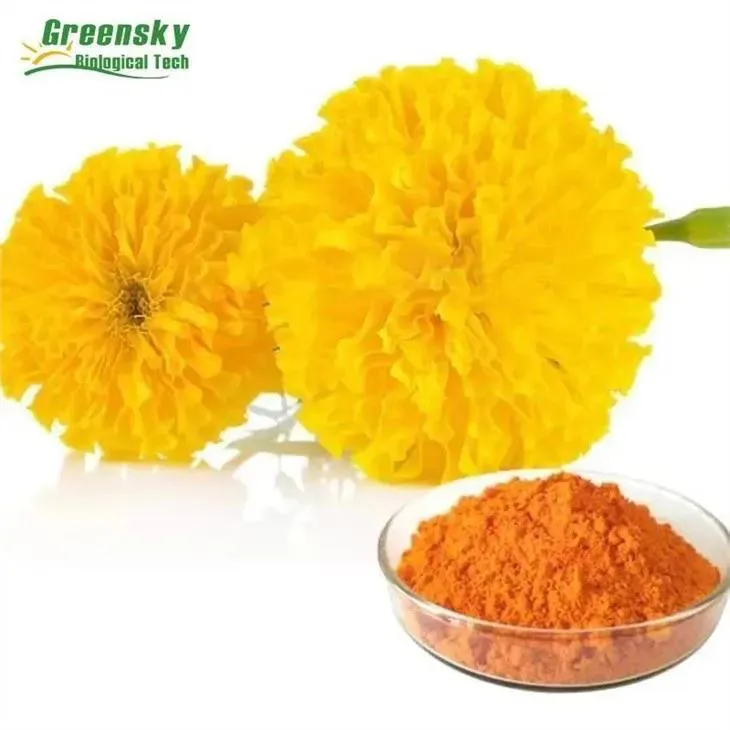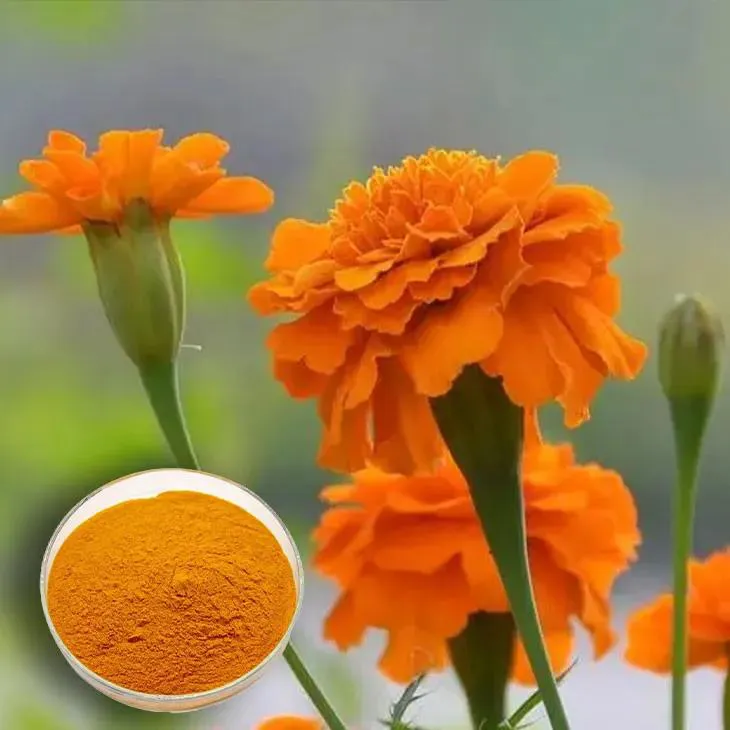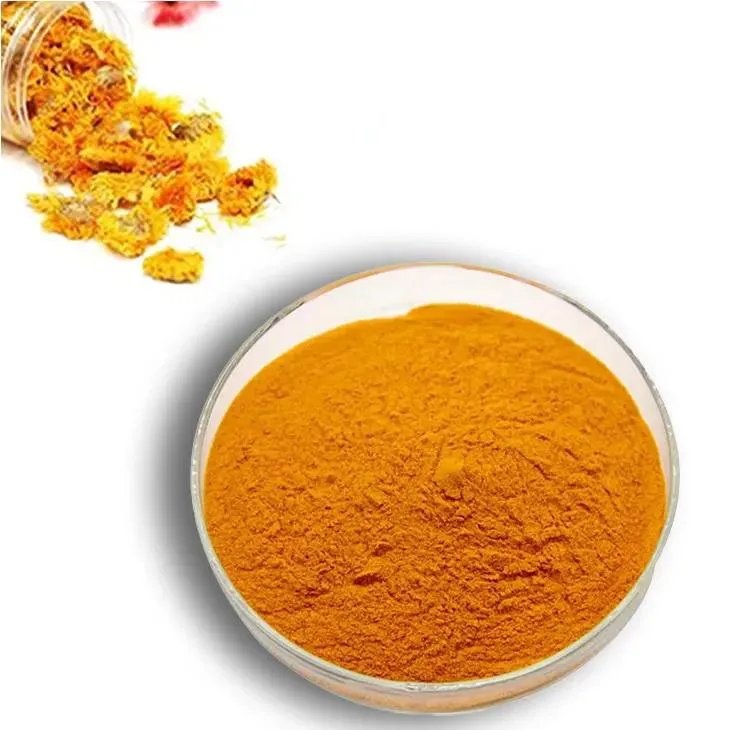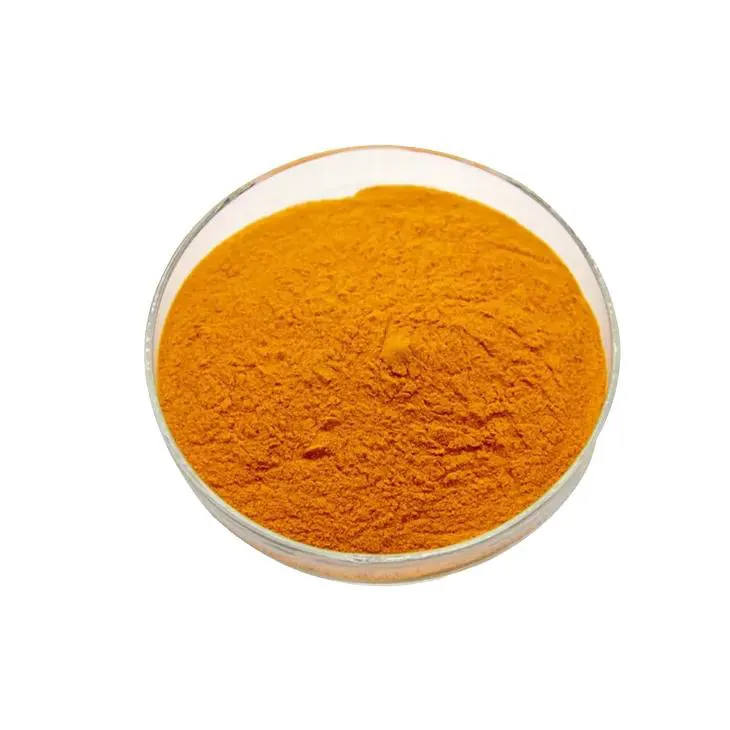- 0086-571-85302990
- sales@greenskybio.com
Expert Tips for Effective Wholesale Purchasing of Marigold Extract.
2024-12-17

1. Introduction to Marigold Extract
Marigold Extract is a valuable product with a wide range of applications. It is rich in various beneficial compounds, such as lutein and zeaxanthin. These carotenoids are known for their antioxidant properties and are highly sought after in the health, food, and cosmetic industries. In the health sector, Marigold Extract is often used in dietary supplements due to its potential benefits for eye health. In the food industry, it can be used as a natural coloring agent, providing a vibrant yellow - orange hue to products. Cosmetic companies also utilize marigold extract in skincare products for its antioxidant and anti - inflammatory effects.

2. Understanding Market Trends
2.1. Current Demand
The demand for marigold extract has been steadily increasing in recent years. One of the main drivers is the growing awareness of the importance of eye health, which has led to an increased consumption of dietary supplements containing lutein and zeaxanthin. Additionally, the trend towards natural and clean - label products in the food and cosmetic industries has also contributed to the rising demand for marigold extract as a natural alternative to synthetic ingredients.
2.2. Future Projections
Market research indicates that the demand for marigold extract is likely to continue to grow in the coming years. As the global population ages, the need for products that support eye health will become even more pronounced. Moreover, with the increasing consumer preference for natural products, the market for marigold extract in the food and cosmetic sectors is expected to expand further. However, factors such as competition from alternative sources of lutein and zeaxanthin and potential regulatory changes could also impact the growth of the marigold extract market.

3. Assessing Purity and Quality
3.1. Laboratory Testing
When wholesaling marigold extract, it is crucial to ensure its purity and quality. Laboratory testing is an essential step in this process. High - performance liquid chromatography (HPLC) can be used to accurately measure the levels of lutein and zeaxanthin in the extract. Other tests may include assays for heavy metals, pesticides, and microbial contaminants. It is advisable to request certificates of analysis from the supplier, which should provide detailed information about the composition and quality of the marigold extract.
3.2. Supplier Reputation
A reliable supplier is more likely to provide high - quality marigold extract. Look for suppliers with a good track record in the industry. Check for customer reviews and testimonials, and inquire about their quality control procedures. Suppliers who are members of industry associations or have relevant certifications, such as Good Manufacturing Practice (GMP), are generally more trustworthy. Additionally, long - established suppliers often have more experience in handling and processing marigold extract, which can contribute to the consistency and quality of their products.

4. Pricing Considerations
4.1. Cost Factors
Several factors influence the price of marigold extract in wholesale. The cost of raw materials, which includes the marigold flowers themselves, is a significant factor. The extraction method also affects the price. More advanced and efficient extraction methods may result in a higher - quality extract but can also be more expensive. Additionally, factors such as production volume, packaging, and transportation costs all contribute to the overall cost of the marigold extract. Understanding these cost factors can help you negotiate a more favorable price with the supplier.
4.2. Comparing Prices
It is essential to compare prices from different suppliers before making a wholesale purchase. However, price should not be the sole determining factor. While a lower price may seem attractive, it could be an indication of lower quality or less reliable service. When comparing prices, also consider the quality of the extract, the supplier's reputation, and any additional services they may offer, such as technical support or custom packaging.

5. Negotiation Strategies
5.1. Volume - Based Discounts
One effective negotiation strategy is to ask for volume - based discounts. If you are planning to purchase a large quantity of marigold extract, you are in a stronger position to negotiate a lower price per unit. Suppliers are often willing to offer discounts for bulk orders as it helps them to secure a significant amount of business. Be prepared to clearly communicate your expected order quantity and the price you are aiming for. However, make sure that the quality of the extract is not compromised in the pursuit of a lower price.
5.2. Long - Term Contracts
Another strategy is to propose a long - term contract. This can provide stability for both you and the supplier. For the supplier, it guarantees a certain level of business over an extended period, and for you, it may result in more favorable terms, such as a fixed price or priority in supply during periods of high demand. When negotiating a long - term contract, it is important to clearly define the terms and conditions, including quality standards, delivery schedules, and price adjustment mechanisms.
5.3. Additional Services and Incentives
You can also negotiate for additional services or incentives from the supplier. For example, you could ask for free samples for product development, faster delivery times, or technical assistance in formulating products with marigold extract. These additional services can add value to your wholesale purchase and give you an edge in the market. In return, the supplier may be more willing to offer more favorable pricing or other concessions.
6. Regulatory Compliance
6.1. Food and Dietary Supplement Regulations
If you plan to use marigold extract in the food or dietary supplement industries, it is essential to ensure that it complies with relevant regulations. In many countries, there are specific requirements regarding the labeling, purity, and safety of ingredients used in food and dietary supplements. For example, the extract must meet certain purity standards and be properly labeled with information such as the content of active ingredients. Failure to comply with these regulations can result in serious consequences, including product recalls and legal penalties.
6.2. Cosmetic Regulations
Similarly, for those using marigold extract in the cosmetic industry, regulatory compliance is crucial. Cosmetic regulations govern aspects such as ingredient safety, product labeling, and manufacturing processes. The marigold extract must be sourced from approved suppliers and meet the safety requirements for use in cosmetic products. It is the responsibility of the wholesaler to ensure that the extract they purchase is compliant with all relevant cosmetic regulations.
7. Packaging and Storage
7.1. Packaging Requirements
Proper packaging is important for maintaining the quality of marigold extract. The extract is sensitive to factors such as light, air, and moisture. Therefore, it should be packaged in materials that can protect it from these elements. Dark - colored, air - tight containers are often preferred. Additionally, the packaging should be labeled clearly with information such as the product name, batch number, expiration date, and recommended storage conditions.
7.2. Storage Conditions
Marigold extract should be stored in a cool, dry place away from direct sunlight. The ideal storage temperature is typically between 2 - 8°C. Proper storage helps to preserve the potency and quality of the extract. If stored under improper conditions, the extract may degrade over time, leading to a loss of its beneficial properties. It is also important to rotate stock to ensure that older products are used first and to avoid product expiration.
8. Conclusion
Wholesale purchasing of marigold extract requires careful consideration of various factors. By understanding market trends, assessing purity and quality, considering pricing, using effective negotiation strategies, ensuring regulatory compliance, and paying attention to packaging and storage, you can make more informed and successful wholesale purchases. This will not only help you to obtain high - quality marigold extract but also contribute to the success of your business in the relevant industries.
FAQ:
What are the key market trends in marigold extract wholesale?
The key market trends in marigold extract wholesale include an increasing demand due to its wide applications in the food, cosmetic, and pharmaceutical industries. There is also a trend towards higher - quality extracts with higher levels of active ingredients like lutein. Additionally, sustainability in production and sourcing is becoming more important to consumers and businesses alike.
How can one evaluate the purity of marigold extract?
To evaluate the purity of marigold extract, one can start by looking at the certificate of analysis provided by the supplier. This should detail the composition and purity levels. Laboratory testing for the presence of contaminants and the accurate measurement of active ingredients such as lutein is also crucial. Reputable suppliers often use advanced analytical techniques like HPLC (High - Performance Liquid Chromatography) to ensure purity.
What are effective negotiation strategies for marigold extract wholesale?
Effective negotiation strategies for marigold extract wholesale include doing thorough market research beforehand to know the price range. Buying in larger quantities usually gives you more leverage for a lower price per unit. Building a long - term relationship with the supplier can also lead to better terms. Another strategy is to be aware of alternative suppliers and use this as a bargaining chip during negotiations.
How important is the source of marigold in wholesale marigold extract?
The source of marigold is very important in wholesale marigold extract. Marigolds grown in different regions may have different levels of active ingredients due to factors like soil quality, climate, and farming practices. For example, marigolds grown in optimal conditions may yield extracts with higher levels of lutein. Also, a reliable and sustainable source ensures a consistent supply of high - quality extract.
What are the common uses of marigold extract in different industries?
In the food industry, marigold extract is used as a natural colorant. In the cosmetic industry, it is used for its antioxidant properties which can help in skin health and anti - aging products. In the pharmaceutical industry, it is being studied for its potential benefits in eye health due to the presence of lutein, which may help prevent macular degeneration.
Related literature
- Market Trends in Botanical Extracts: The Case of Marigold Extract"
- "Evaluating the Purity and Quality of Marigold Extract: Analytical Methods"
- "Negotiation Tactics in the Wholesale of Natural Extracts: A Marigold Extract Perspective"
- "The Significance of Marigold Source in Extract Production"
- "Applications of Marigold Extract across Industries"
- ▶ Hesperidin
- ▶ citrus bioflavonoids
- ▶ plant extract
- ▶ lycopene
- ▶ Diosmin
- ▶ Grape seed extract
- ▶ Sea buckthorn Juice Powder
- ▶ Beetroot powder
- ▶ Hops Extract
- ▶ Artichoke Extract
- ▶ Reishi mushroom extract
- ▶ Astaxanthin
- ▶ Green Tea Extract
- ▶ Curcumin Extract
- ▶ Horse Chestnut Extract
- ▶ Other Problems
- ▶ Boswellia Serrata Extract
- ▶ Resveratrol Extract
- ▶ Marigold Extract
- ▶ Grape Leaf Extract
- ▶ blog3
- ▶ blog4
- ▶ blog5
-
Pure 85% Tomentil Extract.
2024-12-17
-
Nettle Root Extract
2024-12-17
-
Yam Extract
2024-12-17
-
Black Pepper Extract
2024-12-17
-
Honeysuckle Pollen
2024-12-17
-
White mustard seed extract
2024-12-17
-
Fig Extract
2024-12-17
-
Horse Chestnut Extract
2024-12-17
-
Echinacea Extract
2024-12-17
-
Senna Leaf Extract
2024-12-17
-
Marigold Extract
2024-12-17




















